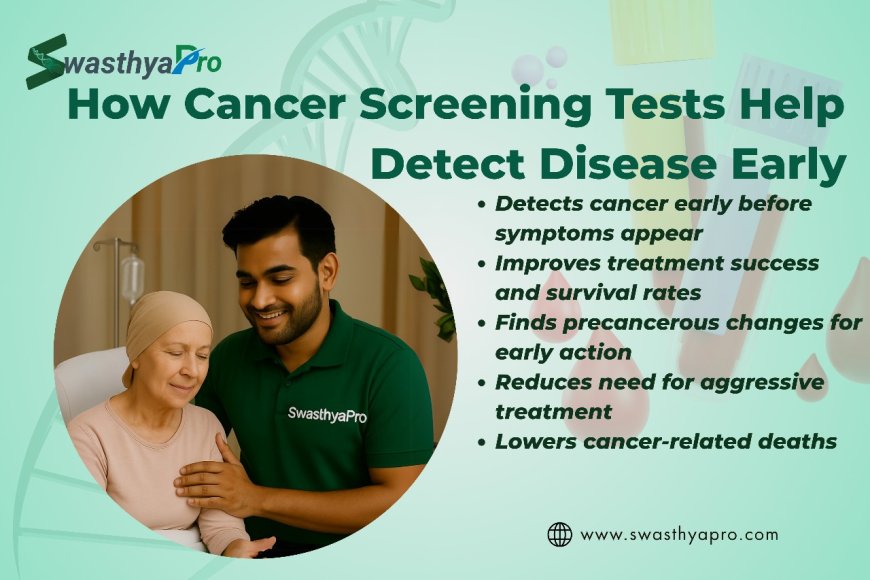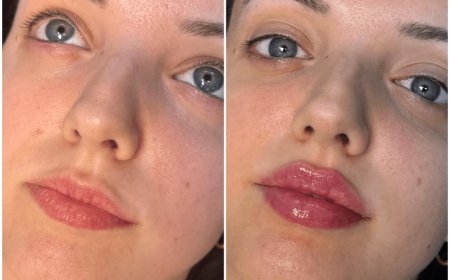Who Needs a Cancer Screening Test the Most?

Cancer doesnt discriminate but risk isnt equal for everyone. While anyone can develop cancer, certain people carry higher risk based on age, lifestyle, family history, and existing health conditions. For them, a cancer screening test isnt optional its essential.
This article breaks down exactly who should prioritize regular cancer screening tests, why they matter most for these individuals, and how early detection can change everything.
1. People Over the Age of 40
Age is one of the strongest risk factors for cancer. As your body ages, your cells have had more time to mutate, accumulate damage, or become cancerous.
Most cancer screening tests start around the age of 4050, including:
-
Mammograms for breast cancer (starting at 40)
-
Colonoscopy for colon cancer (starting at 45)
-
Prostate-specific antigen (PSA) tests for prostate cancer (around 50)
If youre 40 or older, youre in the age bracket where cancer screening tests can catch diseases before symptoms even start.
2. People with a Family History of Cancer
Genetics play a key role in many cancers. If you have a first-degree relative (parent, sibling, child) who had cancer, especially at a young age, your risk significantly increases.
In this case, a cancer screening test might be recommended:
-
Earlier than usual (e.g., start colonoscopy at 40 instead of 45)
-
More frequently
-
With genetic testing for hereditary mutations like BRCA1/BRCA2
Knowing your family history is a life-saving advantage dont ignore it. Share it with your doctor and plan your screenings accordingly.
3. People Who Smoke or Used to Smoke
If youre a current or former smoker, your lungs, mouth, throat, and even bladder are at increased risk. Smoking is the leading cause of preventable cancer deaths.
You should take a cancer screening test like:
-
Low-dose CT scan (for lung cancer, especially ages 5080 with 20+ pack-years of smoking)
-
Oral cancer exams
-
Urine tests if bladder cancer is a concern
Even if you quit smoking years ago, the damage may linger. Screening gives you a second chance to stay ahead of what smoking may have left behind.
4. Women with Reproductive Risk Factors
Women who began menstruating early, had late menopause, or never gave birth may face increased breast and ovarian cancer risk due to prolonged exposure to estrogen.
They should undergo:
-
Regular mammograms (starting at age 40)
-
Pap smears and HPV tests
-
Pelvic exams and transvaginal ultrasounds if family history is present
For these women, a cancer screening test could detect something invisible, but growing long before symptoms appear.
5. People with Unhealthy Lifestyles
If your habits include:
-
Poor diet (high in red meat, low in fiber)
-
Lack of exercise
-
Obesity
-
High alcohol intake
-
Poor sleep
-
Chronic stress
then your risk of colon, breast, liver, and pancreatic cancers may be higher. You should strongly consider regular cancer screening tests tailored to your habits, such as:
-
Colonoscopy
-
Mammogram or PSA test
-
Liver function tests
-
Stool DNA or FIT tests
Your lifestyle choices shape your risk but screening gives you a way to fight back.
6. People with HPV or Other Infections
Certain viruses are known to cause cancer, including:
-
HPV (linked to cervical, anal, and throat cancer)
-
Hepatitis B & C (linked to liver cancer)
-
HIV (weakened immunity increases cancer risk)
A cancer screening test can monitor for:
-
Cervical changes (via Pap + HPV test)
-
Liver damage or tumor markers
-
Oral cancer signs in high-risk individuals
If youve ever tested positive for these infections, screening is your lifeline.
7. People with Previous Precancer or Abnormal Results
If youve had a prior abnormal Pap smear, colon polyp, skin lesion, or borderline PSA levels you are now in the high-risk group.
This means:
-
Youll need frequent follow-ups
-
Skipping a single cancer screening test could mean missing a recurrence
-
Your tests may include advanced options (biopsy, genetic panels, etc.)
Your past already warned you once. Screening ensures it doesnt return stronger.
8. People with Long-Term Chemical or Radiation Exposure
Occupational or environmental exposures increase cancer risk. If youve worked in:
-
Factories (chemical or metal exposure)
-
Agriculture (pesticides)
-
Healthcare or nuclear plants (radiation)
you should undergo annual or bi-annual cancer screening tests for:
-
Lung
-
Skin
-
Blood
-
Liver
Final Thoughts
Not everyone needs the same screening schedule. But some people cant afford to wait. If you fall into any of these groups, your first or next cancer screening test may be the one that saves your life.
? Know your risk profile
? Talk to your doctor about personalized screening
? Make screening part of your routine not your reaction
Because prevention doesnt come after it starts before. And for those at risk, a cancer screening test isnt just wise its urgent.
































